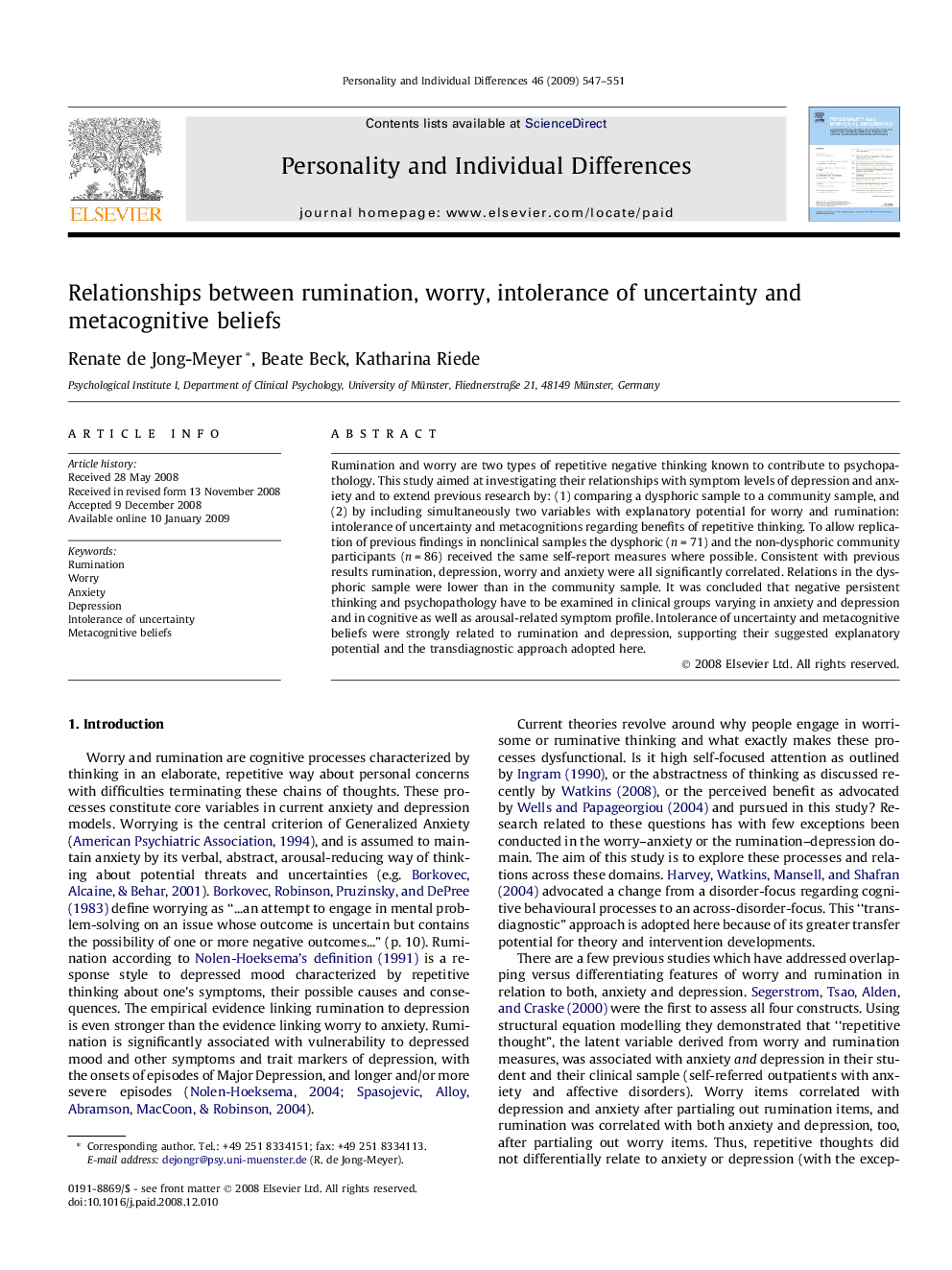| Article ID | Journal | Published Year | Pages | File Type |
|---|---|---|---|---|
| 892451 | Personality and Individual Differences | 2009 | 5 Pages |
Rumination and worry are two types of repetitive negative thinking known to contribute to psychopathology. This study aimed at investigating their relationships with symptom levels of depression and anxiety and to extend previous research by: (1) comparing a dysphoric sample to a community sample, and (2) by including simultaneously two variables with explanatory potential for worry and rumination: intolerance of uncertainty and metacognitions regarding benefits of repetitive thinking. To allow replication of previous findings in nonclinical samples the dysphoric (n = 71) and the non-dysphoric community participants (n = 86) received the same self-report measures where possible. Consistent with previous results rumination, depression, worry and anxiety were all significantly correlated. Relations in the dysphoric sample were lower than in the community sample. It was concluded that negative persistent thinking and psychopathology have to be examined in clinical groups varying in anxiety and depression and in cognitive as well as arousal-related symptom profile. Intolerance of uncertainty and metacognitive beliefs were strongly related to rumination and depression, supporting their suggested explanatory potential and the transdiagnostic approach adopted here.
